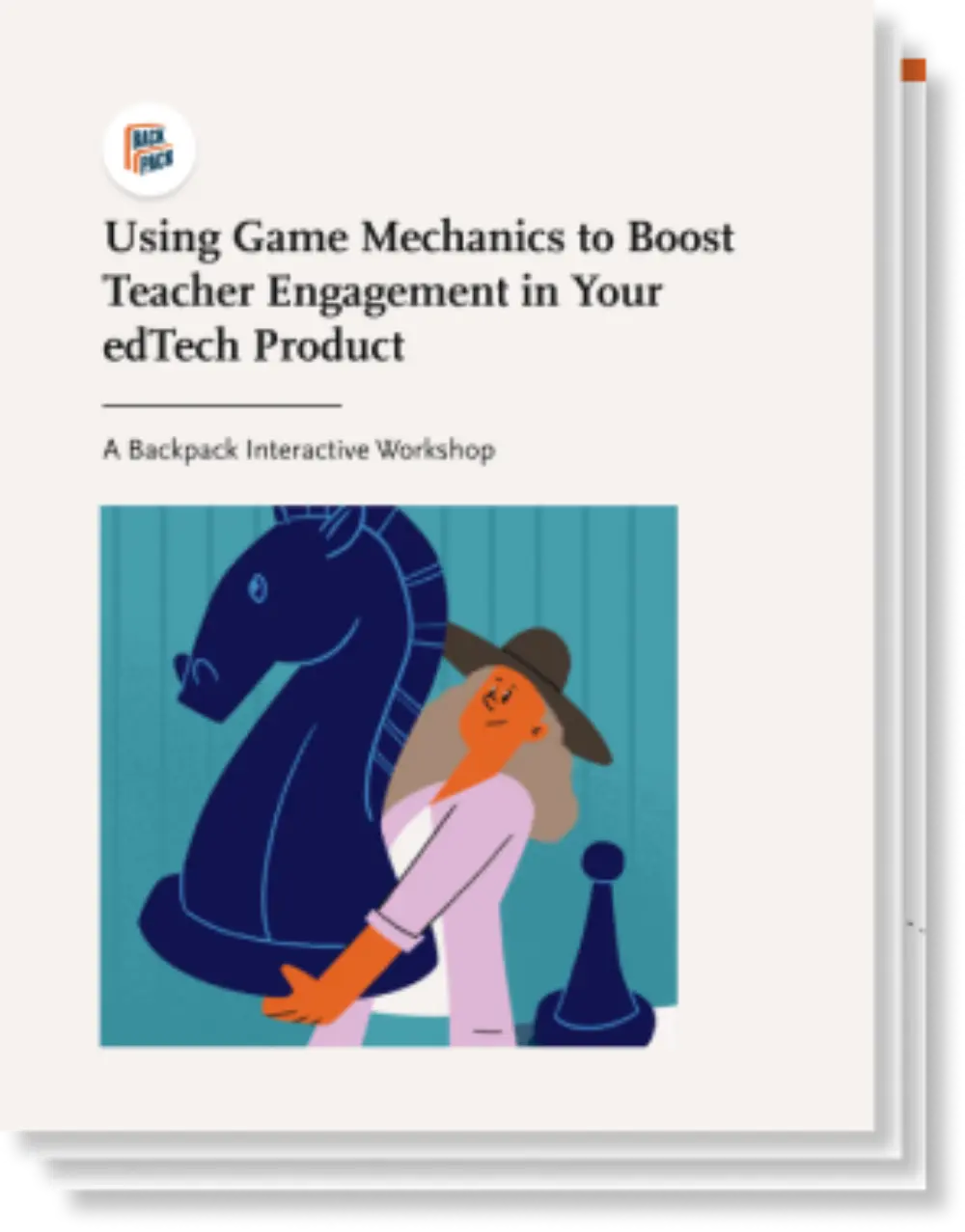
Better Teacher Personas Lead to Better Product Design
If you’re still designing edTech products based on user research conducted before the pandemic, it’s time to update your data. Both student and teacher personas have changed drastically over the past three years—and so have our approaches to researching them.
From new methods in classroom testing to emerging feature ideas, this guide to teacher personas provides everything you need to know about how the pandemic transformed your teacher persona.
Plus, you’ll learn how user experience research (UXR) can help you design more competitive digital learning tools in a rapidly changing edTech landscape.
Let’s dig in.
How Teacher Personas Changed During the Pandemic
Teacher personas are UXR tools that outline everything about your user’s emerging pain points. In 2023, this includes changing views about education and the role of edTech in the classroom. Even though the last three years drastically changed the technology needs of teachers, the importance of researching teacher personas remains.
Because remote and hybrid learning shifted educators’ views of digital learning tools, we continue to see different attitudes toward technology adoption. Over the past year, for example, we’ve discovered that product designers can no longer design for a single teacher persona.
Instead, we must consider common issues for every teacher while keeping in mind the different types of teachers who may all be using the same edTech product. In a single product, you may have to address the needs of:
- Remote educators
- In-person teachers with hybrid classrooms
- Teachers who have more technology needs or use cases
- Teachers with little time to integrate in-person teaching strategies into digital tools
As we return to in-person teaching, the frustrations and pain points of teachers have only grown. Educators must support students who are constantly cycling between in-person and hybrid learning because of self-isolation guidelines.
In addition to managing in-person classrooms, many teachers must also use digital platforms like Google Classroom to manage the needs of hybrid students.
Other factors, like age, familiarity with technology, and content format, also play a role in the changing needs of your persona. That means product owners have more work to do to optimize for different teaching environments, prioritize the right features, and stay competitive in a rapidly shifting edTech marketplace.
Using Teacher Persona Research for More Competitive Product Design
As classroom technology needs change, the edTech market grows ever more competitive. Teachers are constantly choosing from products with better software integrations, as well as a greater variety of tools that align with curriculum standards. These user preferences ultimately affect how CTOs make purchasing decisions at the district level.
Understanding what your persona’s needs are will help you prioritize features with more confidence—and ensure that you stay competitive. With more accurate data, you’ll be able to pinpoint the use cases for robust features, including:
- Different types of user views for teacher-facing products, like admin views or parent portals
- More robust family communication tools or student progress reports
- Better documentation for lesson sequencing and planning that supports teacher professional development
Whether you conduct a full competitive audit or dive straight into qualitative user interviews, user experience research is your best bet for refining teacher personas and staying ahead of the curve.
What Classroom Testing Looks Like Right Now
Even though teacher needs are changing fast, it remains difficult to conduct in-person classroom testing. In order to get the right insights into your teacher persona, you’ll have to be creative about conducting user tests around pandemic restrictions.
One solution? Real-time virtual user testing with a clickable prototype.
That’s right—just like your users, turning to virtual or hybrid UXR solutions can provide serviceable answers. By observing users in real time, even virtually, you and your team will better understand consistent, universal behaviors or outlier patterns.
With additional qualitative interviews, you’ll learn whether teachers prefer specific prototypes or have needs you haven’t anticipated.
Virtual testing certainly isn’t the same as in-person classroom observation. You may find that you especially miss having an opportunity to observe how your tools are used in the classroom environment.
Still, virtual observation and qualitative interviews offer crucial insights into how your edTech product will be used in digital or hybrid environments. And that’s still very much our reality!
Keeping Your User Research Up-to-Date
As edTech specialists, it’s tempting to think we know all the answers. We make assumptions about our users based on expertise—and that used to serve us well.
Once upon a time, user experience research in the field of education evolved at a slower pace. But virtual and hybrid learning have accelerated that pace—and increased the importance of UXR.
Now, more than ever, you need to conduct UXR over time. With fresh data, you’ll be able to update your personas and produce more accurate research. Just think about the lifetime of the pandemic. At this point, a teacher persona that draws on user data from more than a year ago is totally outdated!
It’s also important to invest in meaningful relationships with your users. By treating teachers as co-designers, you’ll receive richer insights, prioritize features more accurately, and design for education more effectively.
The pandemic changed teacher personas for good—and we expect these personas to continue changing over the next school year.
Whether you’re designing an entirely new product or rolling out feature updates, it’s time to ditch outdated user data and start fresh. The teachers who depend on your tools to reach students will thank you for it!
Do you need to update your user personas for a new edTech product? Contact us below to find out how Backpack Interactive can support your UXR needs!

Monica Sherwood
Prior to entering the UX field, Monica was a special educator at public schools in Brooklyn and Manhattan. Her experience as a teacher has allowed her to develop a deep appreciation for research, and the ability to empathize with the unique needs of every user. She is also a strong advocate for inclusion and accessibility in design.
Monica obtained her undergraduate degree at NYU’s School of Individualized Study, and her Masters in Special Education at Hunter College. In her free time, she enjoys traveling, painting, and reading.





